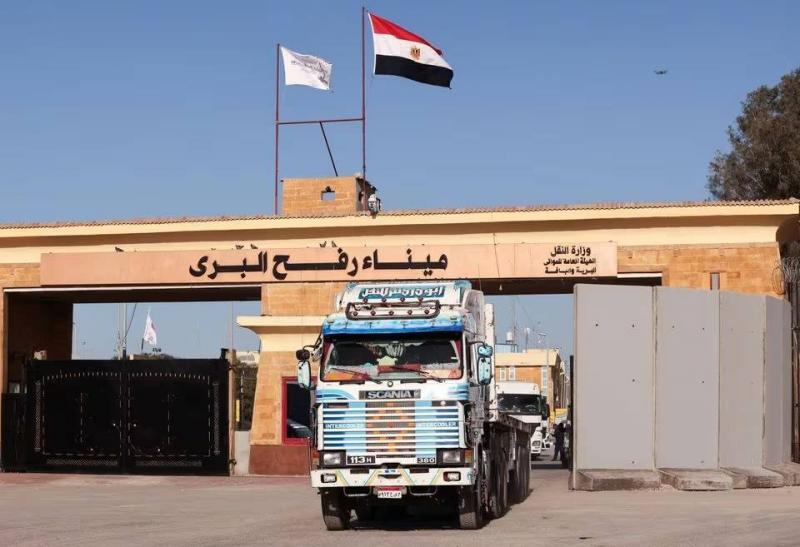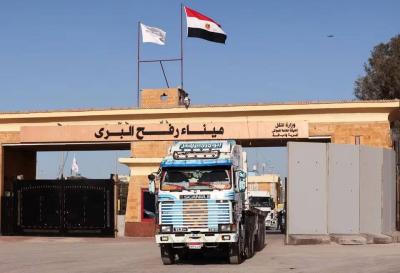Israel plans to expand its ground invasion to include the city of Rafah in the southern Gaza Strip, where more than one million Palestinians have fled to escape the assault that has devastated a large part of the Palestinian territory since the attack by militants from the Islamic Resistance Movement (Hamas) on Israel on October 7.
In recent days, Israel has begun airstrikes on Rafah, which is adjacent to the Egyptian border. Why is Israel planning a ground invasion of Rafah? Israeli Prime Minister Benjamin Netanyahu described Rafah as "the last stronghold" of Hamas, where four battalions of the group's militants are stationed. He stated that Israel cannot achieve its goal of eliminating Hamas while it is present in the city. Israel has sought to eradicate Hamas since the October 7 attack, which Israeli statistics indicate resulted in the deaths of about 1,200 people and the capture of 253 others in Gaza. The Israeli military has already invaded most of Gaza in military operations that have led to over 28,000 deaths, according to authorities in the health sector of Gaza, which is controlled by Hamas.
How many people are in Rafah and what are the conditions in the city? The United Nations Relief and Works Agency (UNRWA), which provides assistance and essential services to Palestinians, states that approximately 1.5 million people currently reside in Rafah, six times the city's population before October 7. Many of these people are living in tents set up in the streets, open spaces, and on the beach along the sandy strip of land adjacent to the border wall with Egypt. Others are crammed into poorly maintained and overcrowded shelters. Doctors and aid workers struggle to provide even basic assistance and to prevent the spread of disease. The Norwegian Refugee Council has referred to the city as the "giant refugee camp." A physician who recently left Gaza described Rafah as a "closed prison" where sewage flows through the crowded streets to the extent that there is barely any room for ambulances to pass.
Where will the displaced go? Israel has ordered civilians to flee southward in the Gaza Strip ahead of its previous attacks on its towns, prompting many of them to head to Rafah. Netanyahu’s office claimed he instructed the military to devise a plan for evacuating Rafah. However, relief officials and foreign governments assert that there is nowhere for the displaced to go. Egypt has stated it will not permit a mass influx of Palestinian refugees into its territory.
How have other countries responded to the plans? U.S. President Joe Biden advised Netanyahu that Israel should not proceed with operations in Rafah without a plan to ensure the safety of the individuals seeking refuge in the city. Other allies of Israel, including the UK and Germany, have expressed concern over the potential assault on Rafah. Dutch Foreign Minister Wopke Hoekstra said it is "hard to imagine how conducting large-scale operations in such a densely populated area wouldn’t lead to a high number of civilian casualties and a larger humanitarian disaster," calling the scenario "unjustifiable." Egypt warned of "severe consequences." Israel asserts that it is taking extensive measures to protect civilians, but it must carry out military operations in civilian areas because Hamas operates there.




